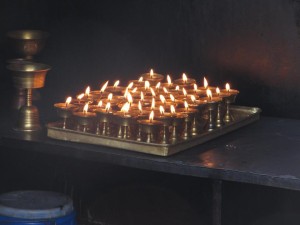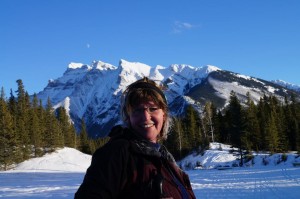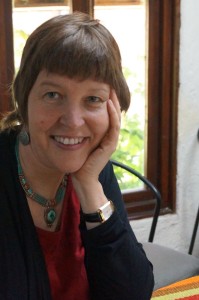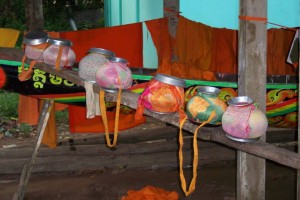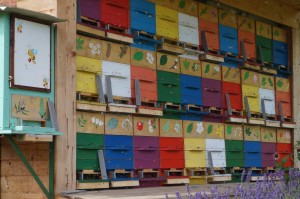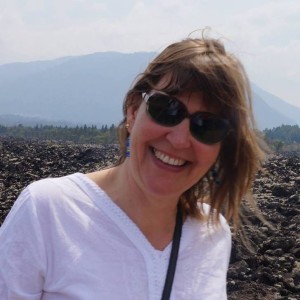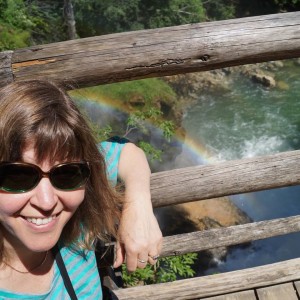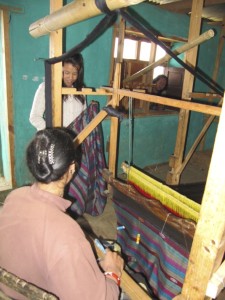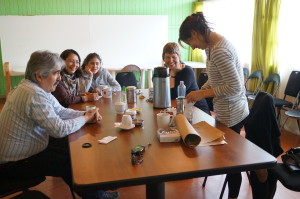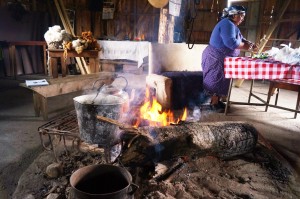Cindy Hanson has demonstrated a lifelong commitment to international development, solidarity movements, cooperation, peace and justice that can be considered nothing short of amazing. Her ongoing contributions include volunteer work where she has been engaged at the community level, devoting countless hours to helping advance the needs of community organizations and the people they represent. She has devoted her professional and academic interest and attention to helping support global activism, writing extensively to further learning in this important area. Cindy Hanson comes from rural working class roots (born in Meacham, Saskatchewan). Her first priority is to be active at the community level. Cindy’s work has supported initiatives in Nepal, VietNam, pan Latin America, South Africa, Burkina Faso, Ghana, and multiple projects in rural Ethiopia. She has worked with indigenous communities such as the Mapuche weavers in Chile and First Nations and Metis beaders in Saskatchewan. We believe Cindy Hanson’s work exemplifies the qualities of global citizenship.
Cindy Hanson has contributed volunteer work for:
- Nicaragua Support Committee
- Tools for Peace
- Ottawa Central American Solidarity Committee
- Genetic Resources for our World (GROW) – staff person
- Manitoba Action Committee on the Status of Women
- United Nations Platform for Action (Manitoba)
- Canadian Teachers’ Federation
- Served on the Peacefund national reference group for the Canadian Council for International Cooperation (CCIC)
- Women’s Community Coalition
- Saskatchewan Council for International Cooperation (SCIC) Board of Directors
- Facilitated community deliberations for SCIC
- Broadway Theatre (Past President of the Board)
- Oxfam Canada and Prairies Region
- Canadian Cooperative Association
- Reel Rave Film Festival
- Canadian Research Institute for the Advancement of Women (CRIAW)
Cindy Hanson’s life of global activism (loosely chronological) includes:
- Ottawa – Central American activism; GROW; Sponsored 2 refugees from El Salvador
- Brandon – Central American solidarity work; feminist work; started working on community projects on Indigenous rights; teaching theatre in the North and high school Native Studies (1990s), the coordinating an elders program at Assiniboine Community College. Was selected by the Canadian Teachers Federation to work on a teaching project in India.
- Won a Canadian International Development Agency (CIDA) Professional award to work with Mapuche in Chile. Lived there for 6 mo.
- Won a Canada 125 medal for work in community.
- Started working on a CIDA project in NEPAL in 2000
- Saskatoon – Working as a consultant on international development projects in Nepal, VietNam, pan Latin America, South Africa, Burkina Faso, Ghana, and multiple projects in rural Ethiopia. Also worked for UN agencies on contracts related to gender and human rights. Participated in the UN Gender Equality Expert Training Group.
- Dr. Hanson’s doctoral work involved interviewing women across Canada who work in gender equality and women’s rights – with a focus on their pedagogical practices in the field.
- Cindy Hanson has been an invited guest to a Quaker Regional meeting to speak on her experiences in gender and development.
- In the last 5 years Cindy Hanson has taught courses with perspectives on global learning and global citizenship at UPEI and at the University of Regina. Her students have also done projects with SCIC. Dr. Hanson presented on gender and development work for an SCIC panel at the University of Regina
- Currently involved in research on Indigenous international learning with communities in Northern Saskatchewan and Southern Chile
- Currently involved in an International Development Research Council (IDRC) through the Centre for the Study of Cooperatives on integrated rural cooperative development. Working with partners in Uganda, Tanzania and Rwanda.
- Dr. Hanson has written about her international work in popular and academic articles and made numerous invited and scholarly presentations.
In all the work Dr. Hanson does is guided by the mantra “the local is in the global”

